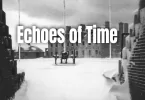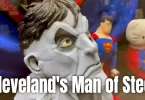Vermont is our 14th state. It was the first state to join the union after the American Revolution, and residents of Vermont fought for both the British and the Americans in that war. However, Vermont was not officially recognized as a state until after the war was over. For a brief period of time, it was the Vermont Republic, an independent nation. Here is the story.
In the early 1700s, the Royal Governors of both New Hampshire and New York made grants of land to settlers in the area that later became Vermont. The king had to settle the matter of which colony had the right to grant land claims in Vermont, as many of the claims from the two colonies overlapped. While the king ruled in favor of New York, the land that was to become Vermont continued to be popularly known as the New Hampshire Grants. Vermont hero Ethan Allen was the leader of a militia group called the Green Mountain Boys and this group supported the right of New Hampshire to grant land in Vermont.
Some of the Green Mountain Boys became friendly with the British side after declaring Vermont an independent republic, and George Washington was asked to go to war against them, but he had his hands full with the British troops. They were engaged in secret negotiations with Britain to restore rule to the Crown for that territory.
In January of 1777, the people living in the Vermont territory declared themselves independent and called their nation the Vermont Republic. Vermont drafted its own constitution that year, which was the first written constitution for an independent entity in North America. Its basis was the same as most of the colonial constitutions… that power is given to the government by the people. The main reason for declaring independence was to get free of New York. The people of Vermont believed they were sufficiently distinguished from the people of New York to consider themselves a separate nation. Being busy with the American Revolution, New York did not object.
Vermont's constitution had some distinguishing characteristics that defined the beliefs of its people. These distinguishing points included outlawing slavery and granting the right to vote to all adult males, whether or not they owned property. These were radical liberal ideas for the time.
Vermont issued its own money and operated its own postal service. It had a governor and sent delegates to the Continental Congress that was meeting in Philadelphia at the time, to see that Vermont's interests were represented in the American Revolution. Vermonters intended from the start to eventually become a state, though it took a while for them to get that official recognition. They were laying the groundwork for it from the beginning, though.
During the Revolution, Ethan Allen and some like-minded politicians approached British-controlled Quebec about joining that province. However, they were rebuffed pending the outcome of the war. The American victory made any allegiance of Vermont with British-controlled Quebec a moot point.
After the war, Vermont applied to become a state. It was allowed to do so after it paid 30,000 Spanish milled dollars to New York to resolve the outstanding land claims. Vermont was admitted to the union as the 14th state on March 4, 1791. It is the only state to be admitted to the union with no conditions attached, and its state constitution is the same as its constitution as an independent republic, with just a few amendments added since then.
Those who are looking for records of their Vermont ancestors should look in the archives of New York and New Hampshire for the pre-1777 period. Records from 1777 and after being kept in the Vermont state archives and various other historical document repositories in Vermont. These records cover the period of independence as well as statehood and are very extensive and well-organized.
Free Vermont Genealogy Lookups




